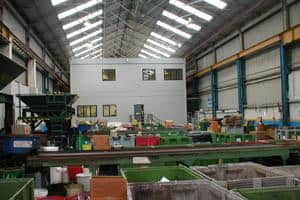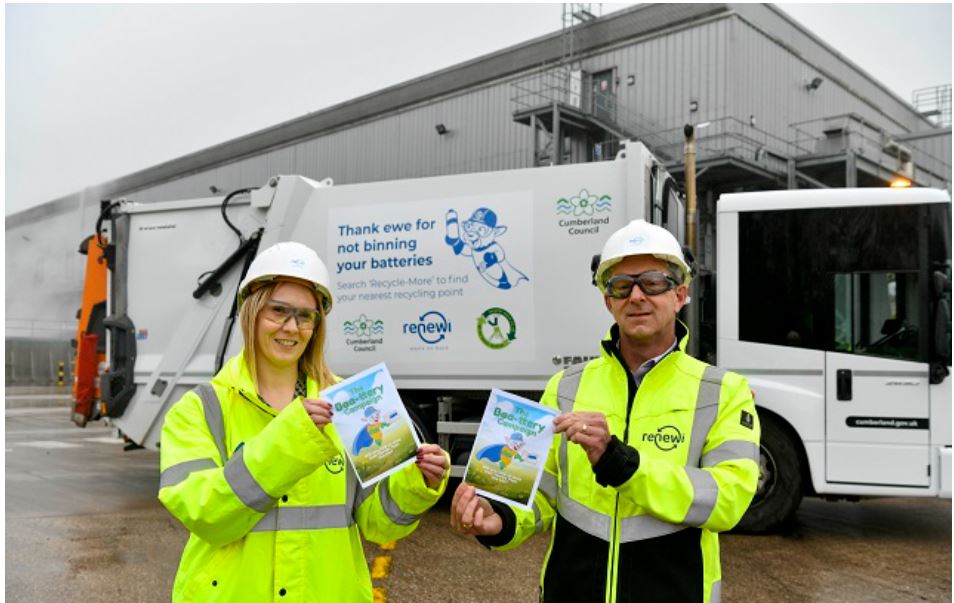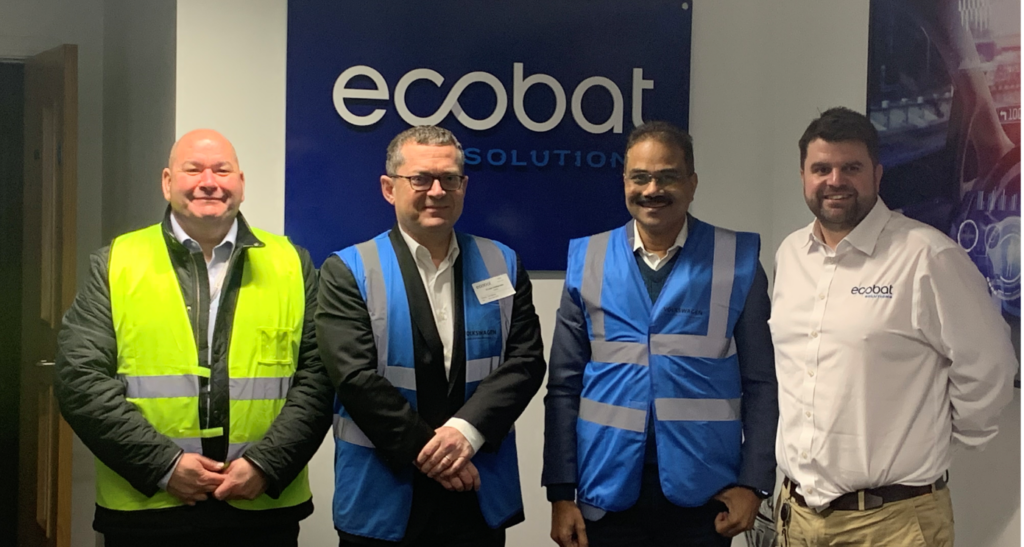Uncertainty over the reprocessing standards needed for waste batteries to count towards recycling targets and a short-term shortage of treatment capacity could push the cost of compliance up for producers.
That is the warning from some of the UKs largest waste portable battery sorters, who told letsrecycle.com that the closure of major European battery reprocessing facilities and resultant loss of capacity was set to force prices up.

Concerns were also raised over a continued lack of clarity over the recovery standards that battery treatment processes should meet to count as recycling and what this could mean for the development of new recycling capacity.
An estimated 60% of all waste portable batteries generated in the UK are sent overseas for treatment. This is because there is no domestic reprocessing capacity for alkaline manganese batteries, which represent the majority of waste portable batteries.
Among the best-known reprocessing facilities was the Citron SA plant in Le Havre, France. However, this plant closed due to bankruptcy in December 2010, while the Valdi plant at Feurs, in France, is currently closed for a yet to be confirmed period as a result of a fatal explosion in June.
The impact of these two plant closures was highlighted by Phil Stead, managing director Hampshire-based battery collection and sorting company Loddon Recycling.
Taking those two out of the equation the number of recyclers in Europe is significantly reduced and theres no-one coming into fill the gap, so capacity is reduced, he told letsrecycle.com.
Mr Stead said the situation would become particularly significant as EU member states including the UK came under pressure to increase the volumes of batteries they collect to meet European battery recycling targets. Under these targets, the UK must increase its collection rate from around 10% in 2010 to 25% by next year, and then up again to 45% by 2016.
As time goes by that will have an effect because theyll give capacity on a first come, first served basis and, if supply exceeds demand, the price goes up, he said. We already have a recycler saying well have to book space and were taking a minimum of 25% price increase.
We have told compliance schemes informally, but there is an issue in Europe which we all need to look at if were going to meet the targets.
G&P Batteries
Commenting on the situation, Michael Green, managing director for West Midlands-based collector and sorter G&P Batteries, agreed that the issues with facilities on the mainland could have an impact on price, but said he thought any shortfall in capacity would not be a long-term issue.
At a time when volumes are increasing across Europe, alkaline is a problem. The best we can say at the moment is it looks like there will be a bit of a shortfall in capacity Europe-wide over the next 18 months, he told letsrecycle.com.
Mr Green explained that G&P had three or four alternative outlets it could use and was in talks with others. He added: I am absolutely confident that, while there might be a short-term issue, there wont be a long term problem. Just hearing what people are saying I dont think it will be an issue for much more than a year.
And, he claimed it would not be an issue for this years collection targets because recycling evidence is issued at the point when a company such as G&P takes the batteries, and it then has until almost the end of 2012 to actually get the batteries reprocessed.
In the longer-term, Mr Green said he was aware of existing battery reprocessing companies looking to add to their capacity and also people looking at alternative ways of recycling that didnt involve a furnace which is the traditional treatment method for waste portable batteries.
In the past, low collection volumes both in the UK and elsewhere have been seen as a barrier to the economically viable development of more battery recycling capacity.
But, Mr Green suggested this situation was now changing, and claimed that an increase in the price of treatment could actually help to encourage the development of these facilities.
If prices start to rise people might start to think we can make money on this, he said. Citron was the main driver in reducing prices but now they have been taken out of the equation maybe prices can go up so other people can compete.
Other people have processes which are above the 50% [recycling efficiency] target where batteries are treated chemically and you can recover everything so it is a much more efficient process. Two companies are doing it but its not economically viable – if prices rise significantly it might become viable, he added.
Recycling efficiencies

Mr Green explained that much of his concern over treatment capacity focused on the question of recycling efficiencies standards setting out what counts towards the useful materials battery reprocessors must recover from a waste battery for it to count as recycled.
Under the Batteries Directive, the UK is expected to comply with these efficiencies from September 26. However, the European Commission is yet to state how the efficiencies should be calculated and Mr Green said that, based on his most recent discussions with Defra, a decision was months away.
As a result, while reprocessors know they need to recover 75% of useful material from nickel cadmium batteries, 65% from lead acid batteries and 50% from others, they dont know exactly how to calculate what counts towards this.
Mr Green explained that this was creating uncertainty for anyone looking to develop new treatment capacity, and also for those who had existing capacity, who could find their processes did not meet the recycling efficiency standards.
That may have bearing on short-term capacity for alkaline batteries because all recycling plants at the moment are furnace based technology which, depending on the decision on recycling efficiencies, might not meet the standards, he said.
But, he suggested that, while setting the efficiencies high could impact on the UKs chances of meeting collection targets and also push up prices, it could be more beneficial from an environmental perspective.
We will put prices up, producers wont be happy because they will end up carrying the extra cost but it might give us the opportunity to improve environmental standards, which has to be for the common good, he said.
You have got to have a system where, if youre going to recycle batteries its got to be done in a way that allows companies to meet environmental standards.
In terms of when a decision could be reached on the targets, he added: The Technical Adaptation Committee have to agree and are a long way from agreeing what it should be, then the Commission has to approve it. Once the Commission has approved it, it has to go to the Parliament but instantly becomes law.
UK facility
Mr Green noted that the final decision on the efficiencies could be the deciding factor when it comes to a dedicated waste portable battery recycling plant being built in the UK.
If they stay where they are in terms of existing processes being able to count [as meeting the efficiencies] its hard to see the UK being able to have a dedicated recycling plant for the full process, he explained.
There might be a plant two years after the recycling efficiencies are finalised, it depends what the standards are.
As it stands, few companies have publicly stated an interest in developing a full-process battery recycling plant in the UK, the exception being Veolia which revealed last year it did plan to build a facility (see letsrecycle.com story), but is yet to outline firm proposals for the project.










Subscribe for free